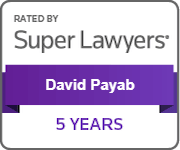Losing your job can be a devastating and confusing experience. More often than not, it leaves you with questions about your future and the fairness of your termination. In California, a state with "at-will" employment, it can feel like your employer has the right to fire you for any reason. While it's true they can terminate you for almost any non-discriminatory reason, there are crucial exceptions. Understanding your rights is the first step toward determining if your termination was wrongful.
The Foundation: At-Will Employment and Its Exceptions
California's at-will employment doctrine means that an employer can fire an employee at any time, for any reason—or no reason at all—as long as it's not an illegal one. However, this is not a blank check for employers. A termination becomes "wrongful" when it violates state or federal law, a public policy, or a valid employment contract.
Key Signs Your Termination May Have Been Wrongful
Navigating the aftermath of a termination is difficult, but certain red flags can indicate a potential wrongful termination claim.
1. Discrimination
Federal and California state laws prohibit employers from firing you based on "protected characteristics." These include:
Race, color, and national origin
Religion
Gender, gender identity, and sexual orientation
Age (if you are over 40)
Disability or medical condition
Pregnancy status
Marital status
If your termination occurred shortly after you disclosed one of these characteristics, or if you were the only person in your protected group to be let go, it could be a sign of discrimination.
2. Retaliation
An employer cannot fire you in retaliation for engaging in a "protected activity." This includes things like:
Reporting workplace harassment or discrimination
Filing a complaint about wage and hour violations
Taking medical leave under the Family and Medical Leave Act (FMLA) or California Family Rights Act (CFRA)
"Whistleblowing," or reporting your employer for illegal or unsafe practices
Filing a workers' compensation claim after a workplace injury
If you were fired soon after you exercised one of these rights, your termination may have been retaliatory and therefore unlawful.
3. Breach of an Employment Contract
While most California employment is at-will, some employees have a written or even implied contract that limits the employer's right to terminate. If your employment contract states that you can only be fired for "good cause," and your employer fired you without a valid, business-related reason, it could be a breach of that contract.
Talk to Woodland Hills Wrongful Termination Lawyers
If you suspect your termination was wrongful, it's essential to act quickly. Gather and preserve any relevant documents, such as your employment contract, employee handbook, performance reviews, emails, or written communication about your termination. Document the timeline of events leading up to your firing, including dates, names of people involved, and details of any conversations.
A wrongful termination claim can be complex, and there are strict deadlines—known as statutes of limitations—that can vary depending on the specific reason for the termination. Speaking with The Law Office of Payab & Associates is crucial to understanding the strength of your case and ensuring you don't miss any critical deadlines. We are here to listen to your story, evaluate your options, and help you understand your rights under California law.
If you believe you have been wrongfully terminated, you don't have to face this challenge alone. Call us today at (818) 918-5522 for a confidential consultation.

































